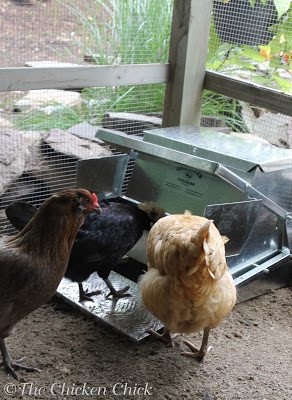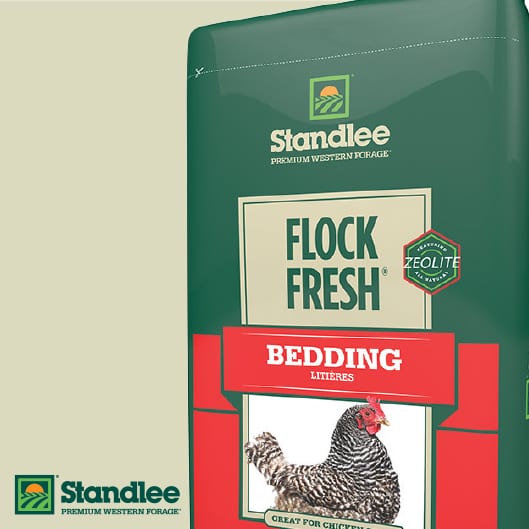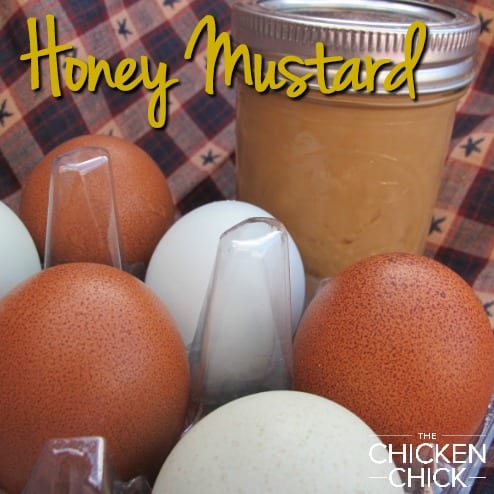The U.S. Department of Agriculture estimates that approximately $2 billion in poultry feed is destroyed by rodents annually. Extrapolating from the startling data found here, I calculated that 25 rats can consume 500 pounds of feed per year; at $20 per bag, a treadle feeder pays for itself in short order, but feed lost to rodent consumption is not the only price paid for the presence of rodents.
After finding the dead mouse in the run, I set up an electronic trap to see if I could catch any of his friends. Much to my surprise, this ginormous rat was in the trap and rodent warfare was ON. <shudder> I didn’t even realize I had a rodent problem before this.
Rodents are known carriers of approximately 45 diseases, including salmonellosis, pasteurellosis, leptospirosis, swine dysentery, trichinosis, toxoplasmosis and rabies. Mice and rats can carry disease-causing organisms on their feet, contaminating ten times the amount of feed they consume with droppings, urine and hair. So, between the risk of disease posed to my flock and the theft of feed, I began to realize that a well constructed treadle feeder that keeps nasty beasties out of the chicken feed is worth its weight in gold.
This treadle feeder has a cantilevered lid over the feed trough that lifts to expose the feed when a chicken steps onto the attached platform and closes when the chicken steps off it.
FEATURES OF THIS FEEDER
- The standard feeder requires 14 ounces of weight to open the lid. An adult rat weighs approximately 9 to 11 ounces. Rats, mice, sparrows, rabbits, squirrels, etc are all normally too light to open treadle feeders.
- Anti-flick grill: prevents the birds from scooping feed out of the trough onto the dirty ground where coccidiosis and other diseases can contaminate the feed.
- Capacity: a standard size holds 20 lbs of feed, which services approximately 6 chickens for 10 days. Vacation, anyone?
- Made of galvanized steel with an alloy treadle plate.
- Poop-proof: chickens can’t poop in it when the lid is closed!
- 12 month, money-back satisfaction guarantee.
TRAINING
As prey animals, chickens are rightfully wary of new things. Teaching them that a peculiar looking new feeder isn’t going to hurt them is necessary. A training period allows the birds to become accustomed to the operation of the feeder. For the first week of training, two bolts prop the lid open fully and the birds get accustomed to standing on the plate and putting their heads into the trough to eat. The second week, the bolts are lowered a notch so that the plate and lid move slightly when the plate is stepped on. The third week, the bolts are removed and the birds operate it themselves- when they step on the plate, the lid opens, when they step off, the lid closes.
Everyone in my flock, from the heaviest to the lightest bird, is comfortable using it. I appreciate that the feed is secure, that my chickens aren’t beaking it out onto the ground for rodents to clean up at night, that I don’t have to fill feeders as frequently, that my birds are eating clean feed 100% of the time, and I am saving loads of money on chicken feed!
Available for purchase here: https://amzn.to/4gwCfKe
Kathy Shea Mormino
Affectionately known internationally as The Chicken Chick®, Kathy Shea Mormino shares a fun-loving, informative style to raising backyard chickens. …Read on


shop my SPONSORS
The U.S. Department of Agriculture estimates that approximately $2 billion in poultry feed is destroyed by rodents annually. Extrapolating from the startling data found here, I calculated that 25 rats can consume 500 pounds of feed per year; at $20 per bag, a treadle feeder pays for itself in short order, but feed lost to rodent consumption is not the only price paid for the presence of rodents.
After finding the dead mouse in the run, I set up an electronic trap to see if I could catch any of his friends. Much to my surprise, this ginormous rat was in the trap and rodent warfare was ON. <shudder> I didn’t even realize I had a rodent problem before this.
Rodents are known carriers of approximately 45 diseases, including salmonellosis, pasteurellosis, leptospirosis, swine dysentery, trichinosis, toxoplasmosis and rabies. Mice and rats can carry disease-causing organisms on their feet, contaminating ten times the amount of feed they consume with droppings, urine and hair. So, between the risk of disease posed to my flock and the theft of feed, I began to realize that a well constructed treadle feeder that keeps nasty beasties out of the chicken feed is worth its weight in gold.
This treadle feeder has a cantilevered lid over the feed trough that lifts to expose the feed when a chicken steps onto the attached platform and closes when the chicken steps off it.
FEATURES OF THIS FEEDER
- The standard feeder requires 14 ounces of weight to open the lid. An adult rat weighs approximately 9 to 11 ounces. Rats, mice, sparrows, rabbits, squirrels, etc are all normally too light to open treadle feeders.
- Anti-flick grill: prevents the birds from scooping feed out of the trough onto the dirty ground where coccidiosis and other diseases can contaminate the feed.
- Capacity: a standard size holds 20 lbs of feed, which services approximately 6 chickens for 10 days. Vacation, anyone?
- Made of galvanized steel with an alloy treadle plate.
- Poop-proof: chickens can’t poop in it when the lid is closed!
- 12 month, money-back satisfaction guarantee.
TRAINING
As prey animals, chickens are rightfully wary of new things. Teaching them that a peculiar looking new feeder isn’t going to hurt them is necessary. A training period allows the birds to become accustomed to the operation of the feeder. For the first week of training, two bolts prop the lid open fully and the birds get accustomed to standing on the plate and putting their heads into the trough to eat. The second week, the bolts are lowered a notch so that the plate and lid move slightly when the plate is stepped on. The third week, the bolts are removed and the birds operate it themselves- when they step on the plate, the lid opens, when they step off, the lid closes.
Everyone in my flock, from the heaviest to the lightest bird, is comfortable using it. I appreciate that the feed is secure, that my chickens aren’t beaking it out onto the ground for rodents to clean up at night, that I don’t have to fill feeders as frequently, that my birds are eating clean feed 100% of the time, and I am saving loads of money on chicken feed!
Available for purchase here: https://amzn.to/4gwCfKe




































Oh! I would love to be the fist one in my neck of the woods to have one. In Washington State. Awe
this looks like a super cool design! we would love to try it with our backyard bird friends. : )
You know I want one of these!!!
This feeder is so neat and weii thought out!
This would be so cool to win!